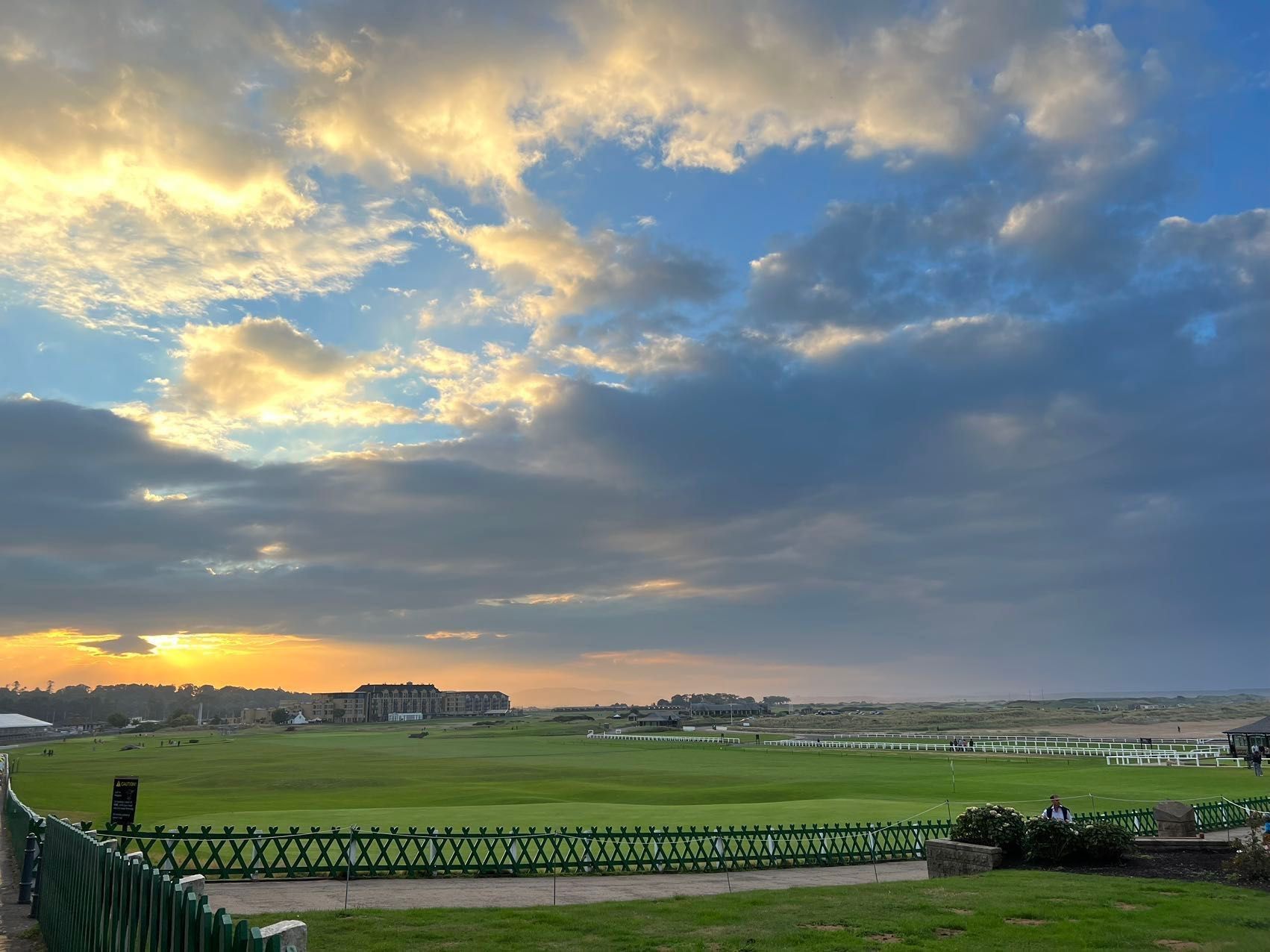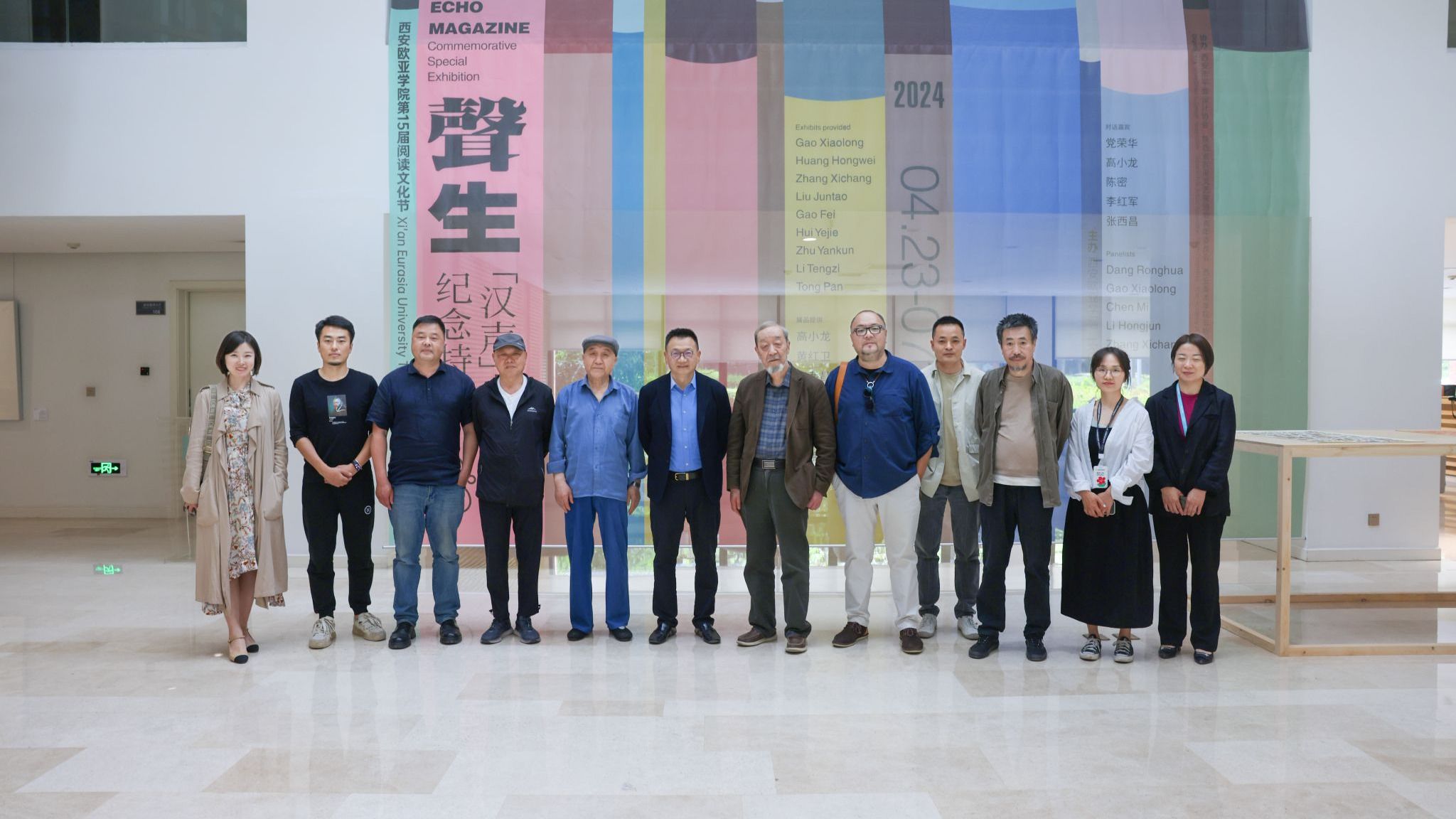In 2022, Pan Wandi, a graduate majoring in English from the School of Humanities and Education, went to the University of St Andrews to study TESOL. How has she started her new life of studying at the oldest university in the UK? How has she been touched during her stay in St Andrews, a city that faces the sea on three sides and enjoys tranquil natural scenery and a unique cultural atmosphere? From English major to TESOL and from Xi’an to Scotland, she has experienced a shift from an all-Chinese context to an all-English environment. During these changes, Pan Wandi strives to challenge herself, improve professional skills, learn cutting-edge knowledge, and gain more confidence and brand-new cognition.

Pan Wandi, a 2022 English major graduate of the School of Humanities and Education of Xi’an Eurasia University, has received offers from Leeds University, University of York, Newcastle University, University of Exeter, and other institutions. She graduated from the University of St Andrews with a master’s degree in TESOL.
Part1
Studying in the Origin Area of English Language
Embarking on a New Journey for TESOL
Q: What opportunity inspired you to have the idea of studying abroad? Why did you choose the University of St Andrews?
Pan Wandi: I am an English major student, and I believe that by being in an English language environment, I can potentially enhance myself and gain opportunities for receiving higher-level education and research. The reason I chose the TESOL (Teaching English For Students of Other languages) program at the University of St Andrews is primarily because St Andrews is a prestigious institution with a global reputation for academic excellence. It is a top-tier research university and is considered a dream institution for many.

(Fig. 1) University of St Andrews
Perhaps few people in China have heard of this university. Still, the University of St Andrews is one of the top-ranked universities in the UK and the oldest university in Scotland. It has a strong international cultural atmosphere and is also the alma mater of Prince William and Duchess Kate. Additionally, St Andrews is a coastal town surrounded by the sea on three sides and also an ideal place to live. Furthermore, I also wanted to continue studying English, so when applying, I only considered the two professional areas of TESOL and Education.
Q: What courses are mainly studied in TESOL program? Did any courses leave a profound impression on you?
Pan Wandi: The courses in TESOL are arranged based on the students’ chosen specialization, which can be either Academic Purpose or Young Learner. I opted for the latter. This choice was influenced by my previous experience in teaching young children, coupled with my friendly disposition. Therefore, I decided to pursue the Young Learner specialization.

(Fig. 2) Classroom at the University of St Andrews
This course left a deep impression on me because its assessment involved not only writing essays but also preparing four teaching plans. The course itself was also quite enjoyable. In class, the teacher would play games with us and teach us how to handle young learners of different ages. Every child goes through their own stages and development periods, and this has deeply touched me. Additionally, TESOL also covers subjects like linguistic/SLA (Second Language Acquisition), which are meaningful and beneficial for future work.
Q: What is your experience of the postgraduate program? How does it differ from undergraduate studies?
Pan Wandi: Regarding class format, the postgraduate program typically emphasizes research and in-depth knowledge. Compared to undergraduate studies, master’s courses tend to involve smaller class sizes, seminars, and research-oriented classes. There is a closer interaction between professors and students, allowing students more opportunities to ask questions, participate in discussions, and present their research findings. Additionally, students can schedule meetings or office hours with their supervisors to inquire about any unclear concepts from class or seek guidance for their current research papers.

In terms of assignments, there is higher demand for academic ability and research skills. We need to write papers, engage in critical analysis, and submit practical reports. The assessment methods in the postgraduate program are more comprehensive and challenging compared to undergraduate studies. Additionally, we have regular forums, which also contribute to the final grade.
Q: What are the biggest challenges in studying language majors? Do you have any unique tips to share?
Pan Wandi: The biggest challenge in language majors is accumulation. At the University of St Andrews, apart from learning English, I also took an evening course in Japanese. I discovered that the first priority in learning any language is to learn how to listen, even if you don’t fully understand at first. It is normal for most international students to struggle to fully comprehend their first class, as they are not yet familiar with the language environment. Regardless of the language, improving language skills requires a significant investment of time and effort, including vocabulary accumulation, grammar study, oral practice, and reading and writing training.
For me, a unique tip in language learning is to find opportunities to socialize with native speakers, whether through face-to-face or online communication. Engaging with native speakers helps improve oral expression, become familiar with authentic usage, and learn common expressions, and idiomatic phrases.
Q: What kind of university is the University of St Andrews regarding learning environment, teaching style, and extracurricular activities?
Pan Wandi: The University of St Andrews is well-known for its small-class and interactive teaching. We have two seminars every week to discuss the topics covered and reinforce our understanding, creating an intense academic atmosphere. Besides the traditional lectures and seminars, the institution encourages students to engage in practical projects, laboratory research, and independent studies. In our program, we analyze secondary research and are expected to demonstrate our independent thinking.

(Fig.3) Traditional activity: foam fight

(Fig.4) May Dip activity
The extracurricular activities are not particularly abundant because the campus area is not large, and the whole town only has three main streets that can be explored in half an hour. However, the scenery is still very beautiful. The most famous events include the “Foam Fight” the “Raisin Weekend”, and the annual “May Dip”. The May Dip symbolizes plunging into the icy sea water, following the first ray of sunshine in May, to seek blessings for passing exams and graduating successfully.
Part2
In Scotland:
A Tranquil Place for Living
Q: How do you typically arrange your daily life in St Andrews?
Pan Wandi: My classes are mostly scheduled on Mondays, Tuesdays, and Fridays. So on Wednesdays, I usually attend evening courses for Japanese to reinforce what I’ve learned earlier in the week and prepare for Fridays’ seminars. I can do whatever I want on Thursdays and at weekends. On Thursdays, I usually complete all the tasks for the week, read some literature, and preview the upcoming week’s content. During the weekends, I visit nearby cities like Edinburgh or Dundee for shopping and relaxation. Occasionally, if I don’t feel like going out, I simply sit by the seaside for an afternoon. St Andrews is surrounded by the North Sea, which brings tranquility and peace, making it an inviting place to spend leisurely time.

Q: What are the unique customs of Scotland? Have you ever encountered any cultural differences?
Pan Wandi: Scotland is well-known for its unique traditions and culture, such as Highland marches, Gaelic music, tartan clothing, bagpipe music, dancing, and among others. Scotland is also famous for its beautiful landscapes and magnificent castles, such as the Scottish Highlands and the Lochs region. Additionally, Scottish food and drinks have their distinct characteristics. For example, Scotch whisky is globally renowned. Regarding cultural differences, they are not particularly obvious, but one notable feature in Scotland is that buses do not announce the stops. Passengers must press the bell when they reach their own stop; otherwise, bus drivers will not stop. Additionally, during my stay of over a year in Scotland, I haven’t seen many electric cars or motorcycles, perhaps due to the terrain in some areas.


Q: How do you relieve the pressures of living and studying in such a foreign country?
Pan Wandi: The pressure can be higher, especially when surrounded by friends who excel academically. My academic foundation is not as strong as theirs because they either have completed their undergraduate studies abroad or achieved high scores in individual subjects in the IELTS. My IELTS score barely met the requirements, so I can’t compete with them. This led to a constant state of anxiety. Particularly during the winter months, when nights are long and it gets dark around 4 p.m., the seemingly endless nights were exceptionally difficult to bear. Fortunately, I have friends during these times. If my friends weren’t around, I would light some scented candles to make essay writing and meeting deadlines less lonely.

(Fig.5) Spring Festival party with friends
Q: What do you do during your leisure time apart from your studies?
Pan Wandi: If I have enough free time, I like to go on spontaneous trips with friends. If it’s only for three or four days, we would explore different places within the UK, take photos, and do some shopping. For longer breaks of a week or more, I would discuss with friends and plan trips to other European countries. However, we tend to keep it spontaneous and not overly prepared or follow popular tourist attractions. We prefer to go with the flow and enjoy the journey in a foreign country.

Apart from the UK, I have visited Qatar, Turkey, France, and Spain. The most impressive memories are from various museums in Paris and the Mediterranean atmosphere in Barcelona, Spain. It was the first time I saw the famous masterpieces that I had previously only encountered in textbooks – Leonardo da Vinci’s enigmatic and elegant “Mona Lisa”, Vincent van Gogh’s poetic and romantic “Starry Night”, and Claude Monet’s soft and dreamlike “Water Lilies”. Each artwork is worth contemplating. I feel extremely fortunate to have taken photos with these treasures, as they have become invaluable treasures in my life.
Part 3
Moving ahead into the Future
Constantly Obtaining Upward Power
Q: What are your gains when studying abroad?
Pan Wandi: Firstly, my language skills have undoubtedly improved. By being exposed to different cultures and interacting with diverse groups of people, I have made many foreign friends here and can confidently engage in conversations with them. Communicating, attending classes, and living alongside native English speakers have contributed to my language progression. Secondly, studying abroad has enhanced my independence and boosted my self-confidence. Living alone in a foreign country requires managing day-to-day affairs, problem-solving, and adapting to new environments. When faced with new challenges and difficulties, my initial response is to find solutions rather than immediately seeking assistance from others.

(Fig.6) Christmas Party
My interpersonal relationships and social skills have also improved significantly. Studying abroad has allowed me to meet students and friends from all over the world, helping me establish an international network. By participating in academic, club, and social activities, I have developed interpersonal relationships. Everyone is friendly, so I have no fear of socializing.

(Fig.7) Game competition organized by student union
Q: What are the requirements for applying for a postgraduate program in liberal arts in the UK? If someone wants to study abroad, what aspects do you think they should focus on during their undergraduate studies?
Pan Wandi: Firstly, language proficiency is crucial, such as achieving good scores in exams like IELTS, TOEFL, or Duolingo English Test. Another important aspect is your overall GPA, which should be as high as possible. Many universities have a GPA requirement, such as 85 or above. Additionally, it is beneficial to gather internship and research experience to enhance your competitiveness. Most postgraduate programs abroad value practical experience, so having internship experience is definitely a plus. Participating in extracurricular activities and winning awards during your undergraduate studies can also be helpful for the application process.
Q: What else would you like to share with those who aspired to study abroad?
Pan Wandi: Courageously pursue your dreams, as studying abroad will become a valuable experience in your life. It is an opportunity to challenge yourself, develop resilience, and explore new knowledge and experiences. Throughout this journey, you will encounter difficulties and challenges, but you will also experience personal growth and create countless memories!







